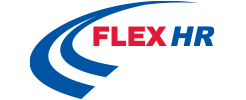Adjusting To The Future Of Work
One of the many ways America is having to adjust the way they work has been the result of the Pandemic. Now that we are all a living experiment of making it through such a challenging time, HR professionals and employers realize the lasting impact of working from home.
Thrive Global interviewed Flex HR’s Senior Vice President, Dr. John Cascone, to talk about how we need to adjust for the future of work. He notes that “globalization is the greatest societal force that will impact the future of work for the remainder of the 21st century. The recent pandemic is evidence of how globalization affected the health of the world’s population. While the effects of the COVID-19 pandemic can be clearly seen on businesses, healthcare, job security and government, globalization also has had its impact on trade, consumer goods, industry, immigration, and social polarization all of which has and will continue to have an impact on our workforce.”
The whole world learned quickly they needed to adapt to the change in order to survive. Businesses shifted their operations and made changes to their policies and better prepared their workforce to adjust to these alterations.
Workforce Adaptation
It’s no surprise that technology will continue taking over, work tools will keep improving and structure will undergo constant change. Quality and agility of these factors play an important role to an organization staying at the forefront of these adaptations. The workforce is also becoming younger, more culturally diverse, and more vocal in its expectations for job satisfaction.
Effectively managing the multi-varied workforce to keep competent employees familiar with and proficient in executing the organization’s business is a huge challenge facing organization leaders of the future. Employee retention of qualified employees will test the competency. Management’s willingness to mentor the employee for career growth, and corporate social responsibility rather than loyalty to the organization and personal monetary compensation, will make all the difference.
Remote Work
If the Pandemic changed one major entity, working from home has become a global movement that is here to stay in the near future. Additionally, Managers have struggled to adjust current processes due to the demands of work/life balance. Dr. Cascone admits that remote work “is one of the reengineering challenges facing organization leadership today and in the future. Differentiating the type of work, employee eligibility, work performance and productivity monitoring systems, employer liability issues, communication requirements and systems among others will be the issues and problems facing organization leaders.”
Because people are working remotely, employers should schedule face to face meetings via zoom to periodically check-in with their teams and individual staff members. Employee recognition and work incentive programs need to be implemented to boost productivity, employee satisfaction, as well as company loyalty. Planning performance reviews in advance to discuss employee career path opportunities will be even more valuable to retaining individuals in the future.
Top 5 Trends To Track In the Future of Work 2023
- More effective communication systems will emerge between employees and their organization leaders bring management and employees in greater alignment between the interests of the employee and the needs of the organization. requirements necessary to support the strategic direction of the organization.
- There will be a shift away from investing dollars in recruiting new employees to investing dollars in retaining and developing employees.
- Work/life balance will increasingly become a mainstay in the lexicon of Best Management Practice. challenges of organization leaders.
- The trend toward promoting cultural diversity in all sectors of the organization will continue but coupled with the emphasis on diversity of ideas, values, work styles and ethics operating under clearly defined standards of accountability and outcome performance.
- The devastating effects of the pandemic on organizations have reawakened the interest in monitoring environmental influences to forecast and moderate the negative impact on organization operations.
In conclusion, Dr. Cascone explains “the new Millennial Generation of workers entering the workforce will rewrite the rules governing the management of work in the 21st century. The focus of work will be on work outcomes not on work processes. The younger worker will place more trust and loyalty in people that mentor them, help them learn and achieve their life aspirations rather than on organizations goals and purpose.”
Promoting satisfaction is already becoming a key motivator to keep workers feeling they are of value to the company. This will need to continue into the future as managers must think outside the box to keep their human assets protected to evolve their business.
Read the full article HERE
Contact us now to discuss your HR needs.


